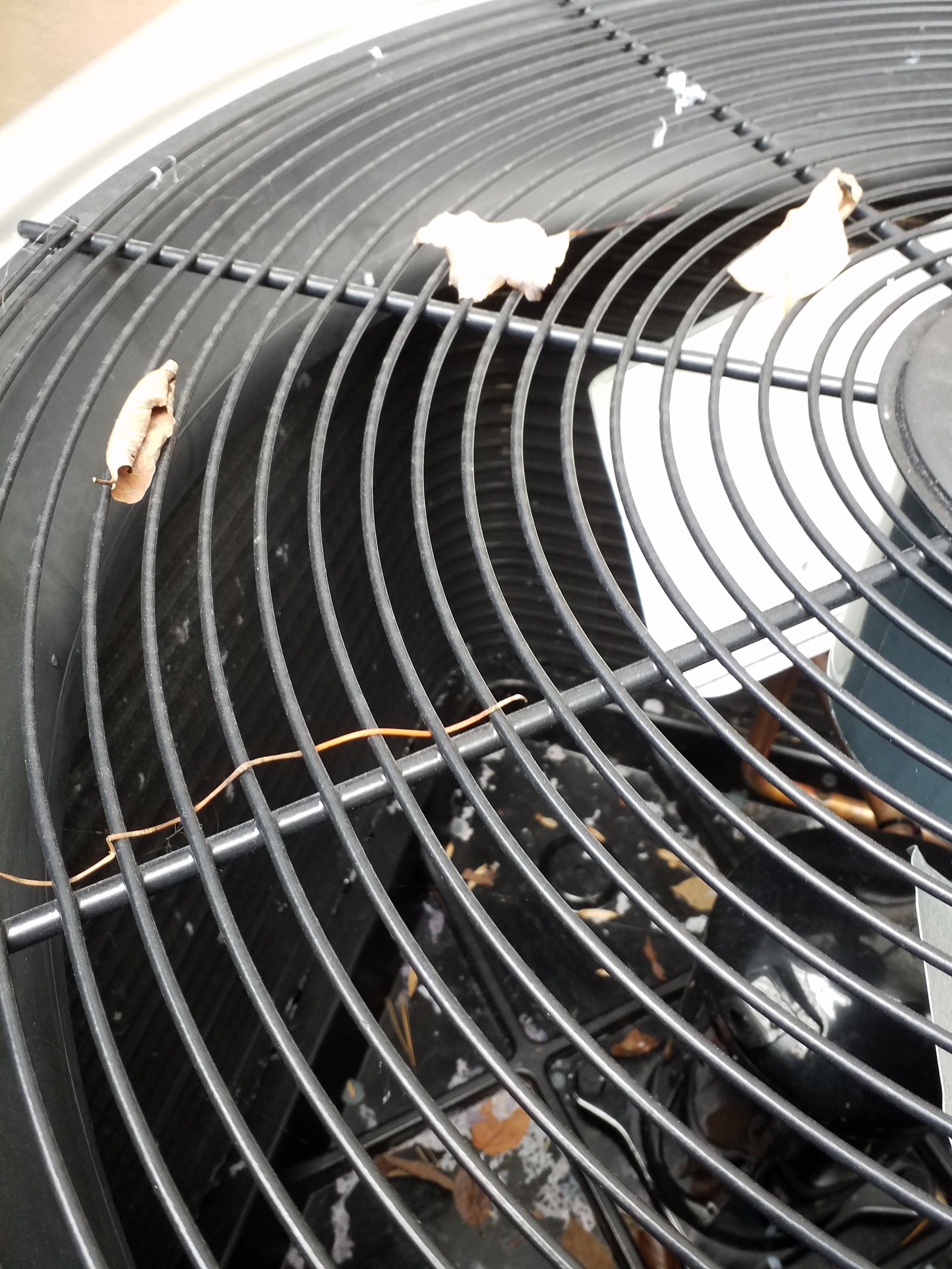Let’s talk about . . . Condenser Units
There are two types of central air systems, integral and split. An integral system houses all the parts, compressor; condenser; evaporator; and fans, in one location. It can be either inside or outside of a home. A split system separates the compressor and condenser, the condenser unit, placing them outside of a home. It's evaporator and fans are located inside. Our focus in this article will be on the split system and more specifically on the condenser unit.
photo: via InterNACHI
Warning, homeowners not familiar with air conditioning units should not open or service the condenser unit. The condenser unit houses live 240-volt electrical connections inside and place homeowners at risk of injury or death. We recommend hiring an HVAC professional when seeking repair or servicing to these units.
When running air conditioning units, homeowners should only turn units on when the outside air temperature is above 65F. Running units below 65F is not recommended as the system will not properly function and may even shut-off to prevent damage under excessive stress.
As mentioned, the condenser unit is a part of a split system and is located along with the compressor inside a cabinet called a condenser unit. The unit is located outside of the home and is linked to the rest of the system by refrigerant lines that carry freon. The freon is turned from a gas to a liquid when passing through the condensing coils.
Maintaining Your Condenser Unit
Regular maintenance of the condenser unit helps prolong the life of the system. We recommend having condenser units be checked annually in the spring since the weather is just about to become warmer.
Ensure that the unit is level and securely placed. Make sure that airflow is unobstructed, to clear back any brush, and other kinds of obstructions at least 3 feet away from the condenser unit. Poor airflow will lead to poor heat transfer since the refrigerant liquid will be warmer when coming back into the home.
photo: via Remedy Inspections
Shine a flashlight from the outside of the unit to check that the condenser coils are clear and damage free. Checking for damaged fins are important since bent fins will reduce the airflow and heat dissipation. While straightening fins are possible it may be difficult to access. We recommend having a service person come out and see what can be done.
After you've checked that your unit is free of dirt and debris check that all connections are intact and secure. Turn on the unit for a few minutes and feel whether or not warm air is discharging out of the condenser unit. If warm air is not evident it might be a sign of a faulty compressor or low refrigerant in the system. If you see oil leaking from the condenser it may be a sign that your unit is damaged and should seek advice from a HVAC service person for recommendations.
During off-season, it’s highly recommended to purchase a condenser unit cover. These covers prevent debris, such as leaves, from entering the unit and can help cut down on time spent cleaning the debris out.
Whether you have a integral system or a split system, it's always beneficial to keep up with the annual maintenance of your central air. This will keep your home cool in the warmer months and keep you and your family comfortable when you need it most! At Remedy Inspections we'll make sure to look for any defects that might need attention during our home inspections.
Our home inspections include a comprehensive report that’s detailed in our Standards of Practice. Weather permitting, we include aerial drone inspections providing high quality imaging of the home's roof. Finally, we offer additional services in radon testing, termite inspection, and pre-listing inspections. Check out our competitive pricing and services!
Place your trust in the knowledge that your home inspection will be detailed, truthful and informative with Remedy Inspections, LLC. We’re conveniently located in Rockaway, NJ and proudly serve all of New Jersey! Call us today (908) 210-5816 for your next home inspection!



